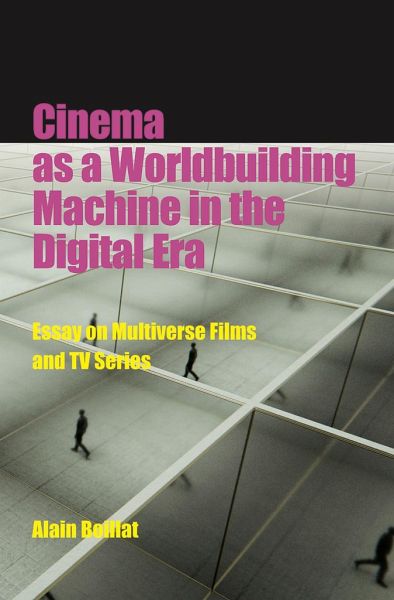
Cinema as a Worldbuilding Machine in the Digital Era
Essay on Multiverse Films and TV Series

PAYBACK Punkte
14 °P sammeln!
This essay examines the primacy of worldbuilding in the age of CGI, transmedia practices and "high concept" fiction by studying the principles that govern the creation of a multiverse in a wide range of film and TV productions. Emphasis is placed on Hollywood sci-fi movies and their on-screen representation of imaginary machines that mirror the film medium, following in the tradition of Philip K. Dick's writings and the cyberpunk culture. A typology of worlds is established, as well as a number of analytical tools for assessing the impact of the coexistence of two or more worlds on the narrati...
This essay examines the primacy of worldbuilding in the age of CGI, transmedia practices and "high concept" fiction by studying the principles that govern the creation of a multiverse in a wide range of film and TV productions. Emphasis is placed on Hollywood sci-fi movies and their on-screen representation of imaginary machines that mirror the film medium, following in the tradition of Philip K. Dick's writings and the cyberpunk culture. A typology of worlds is established, as well as a number of analytical tools for assessing the impact of the coexistence of two or more worlds on the narrative structure, the style (uses of color, editing practices), the generic affiliation (or hybridity), the seriality and the discourse produced by a given film (particularly in fictions linked to post-9/11 fantasies). Among the various titles examined, the reader is offered a detailed analysis of the Resident Evil film series, Total Recall and its remake, Dark City, the Matrix trilogy, Avatar, Source Code and other time-loop films, TRON and its sequel, Christopher Nolan's Tenet, and several TV shows - most notably HBO's Westworld, but also Sliders, Lost, Fringe and Counterpart.



